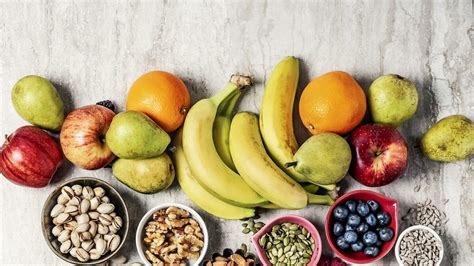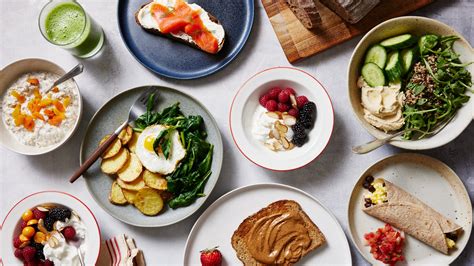In the quest for optimal male health, two critical pillars often stand out: robust testosterone levels and efficient recovery from physical exertion. While protein and carbohydrates frequently hog the spotlight, the often-misunderstood macronutrient – fat – plays an equally, if not more, pivotal role. Specifically, the daily intake of healthy fats can profoundly influence a man’s hormonal landscape and his body’s ability to rebound from the demands of exercise.
The Essential Link Between Healthy Fats and Testosterone
Testosterone, the primary male sex hormone, is fundamental for muscle growth, bone density, libido, and mood. What many don’t realize is that cholesterol, a type of fat, serves as the direct precursor to all steroid hormones, including testosterone. Without an adequate supply of healthy fats in the diet, the body simply lacks the raw materials necessary for optimal hormone synthesis.
Monounsaturated fats (MUFAs), found abundantly in olive oil, avocados, and nuts, have been linked in studies to higher testosterone levels. Similarly, polyunsaturated fats (PUFAs), especially omega-3 fatty acids from fish, flaxseed, and walnuts, are crucial. They not only provide building blocks but also improve cellular sensitivity to hormones and reduce inflammation, which can indirectly support testosterone production. While often demonized, a moderate intake of healthy saturated fats from sources like grass-fed butter or coconut oil is also necessary, as they contribute to the structural integrity of cell membranes and are involved in cholesterol synthesis.

Fats’ Influence on Hormonal Balance and Cellular Function
Beyond being mere building blocks, healthy fats contribute to overall endocrine system health. Omega-3s, in particular, play a vital role in reducing systemic inflammation. Chronic inflammation can disrupt the hypothalamic-pituitary-gonadal (HPG) axis, the brain-testicle feedback loop that regulates testosterone production. By mitigating inflammation, healthy fats help maintain a smoother functioning hormonal system.
Furthermore, fats are integral components of cell membranes, including those of the Leydig cells in the testes responsible for producing testosterone. The fluidity and integrity of these membranes are influenced by the type of fats consumed, impacting receptor function and cellular communication—processes critical for efficient hormone signaling and production. A diet rich in unhealthy trans fats and excessive refined vegetable oils can compromise these cellular structures, potentially hindering testosterone synthesis.

Accelerating Recovery from Physical Activity with Fats
Intense physical activity, while beneficial, places significant stress on the body, leading to muscle damage and inflammation. Healthy fats are not just about hormone production; they are powerful allies in the recovery process. Omega-3 fatty acids, renowned for their anti-inflammatory properties, can significantly reduce post-exercise muscle soreness (DOMS) and accelerate tissue repair. They achieve this by influencing the production of eicosanoids, signaling molecules that regulate inflammation and immune responses.
Additionally, fats serve as a dense source of energy, crucial for replenishing glycogen stores and supporting metabolic processes during recovery. While carbohydrates are the primary fuel during high-intensity exercise, fats become increasingly important for longer-duration activities and in the post-exercise period when the body is repairing and rebuilding. Adequate fat intake ensures a stable energy supply, preventing the body from resorting to muscle tissue for fuel and supporting overall anabolic processes critical for growth and repair.

Practical Strategies for Incorporating Healthy Fats
To harness these benefits, men should focus on integrating a variety of healthy fat sources into their daily diet. Excellent choices include:
- Monounsaturated Fats: Avocados, olive oil (extra virgin), almonds, cashews, pecans.
- Polyunsaturated Fats (Omega-3s): Fatty fish (salmon, mackerel, sardines), flaxseeds, chia seeds, walnuts, hemp seeds.
- Healthy Saturated Fats (in moderation): Grass-fed butter, ghee, coconut oil, dark chocolate.
Aim for fats to constitute around 20-35% of your total daily caloric intake, with a strong emphasis on unsaturated varieties. It’s not just about the quantity, but the quality of fats. Replacing trans fats and refined vegetable oils with whole, unprocessed sources will yield the most significant benefits for both testosterone production and recovery.

Conclusion: Fueling Male Vitality
The evidence is clear: healthy fats are far from dietary villains; they are indispensable allies in a man’s pursuit of optimal health. By providing the essential building blocks for testosterone, supporting crucial hormonal feedback loops, reducing inflammation, and fueling cellular repair, a judicious daily intake of healthy fats directly influences both robust testosterone levels and efficient recovery from physical activity. Prioritizing these beneficial fats in your diet is a powerful step towards enhanced vitality, strength, and overall well-being.





